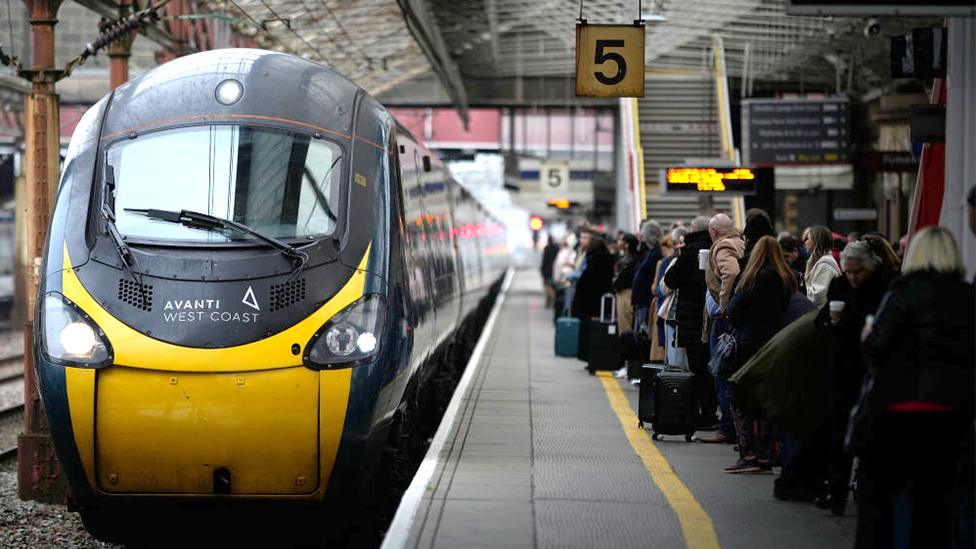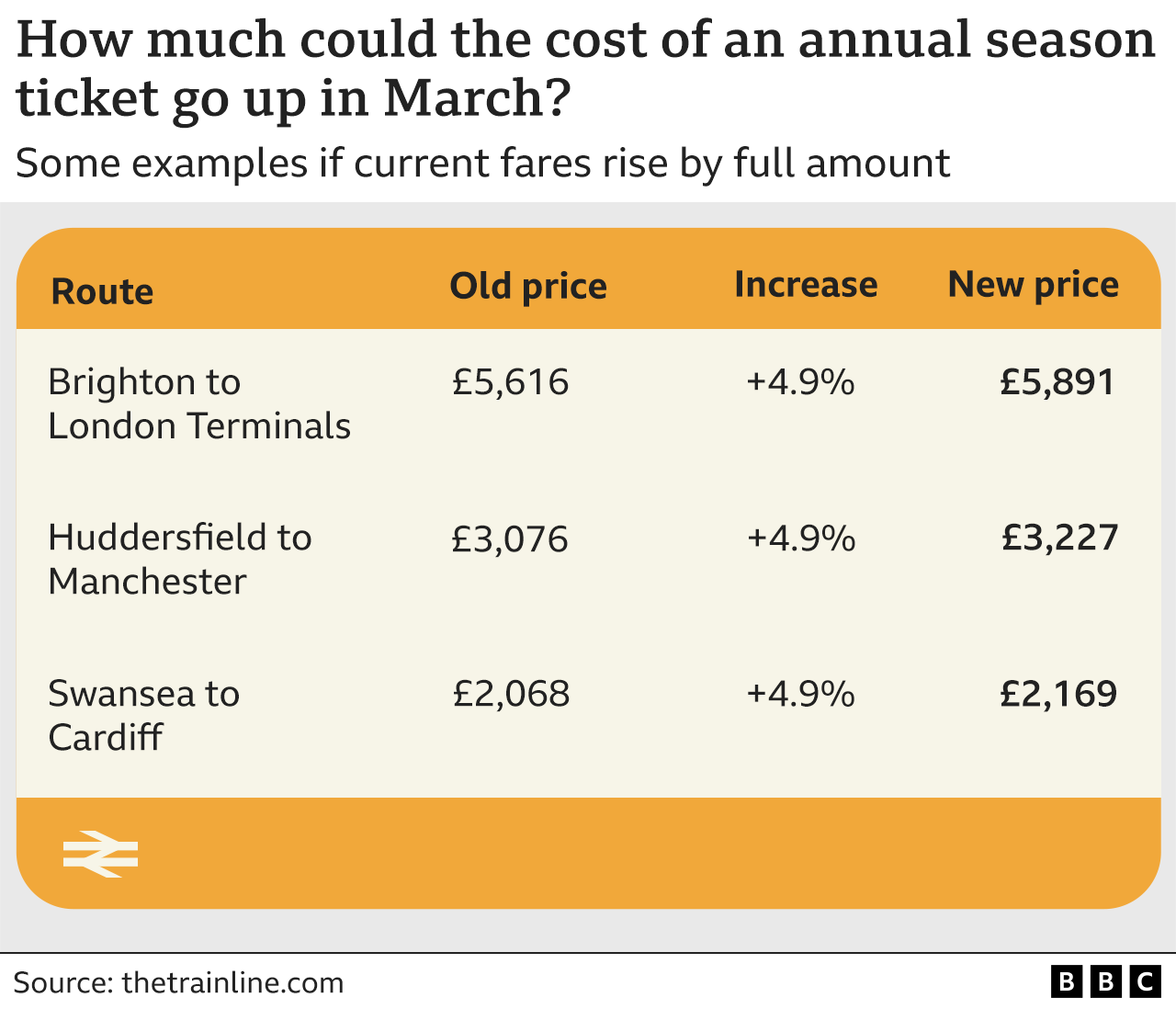Rail fares in England to rise by up to 4.9% in March
- Published
- comments

Regulated train fares in England will rise by up to 4.9% from March, the Department for Transport has said.
The increase is capped below inflation and will be delayed from January when hikes usually come into force.
In the past, fares have risen based on July's retail price index (RPI) measure of inflation, plus an additional 1%.
But the Department for Transport has decided to limit fare price increases for a second year in a row below July's RPI rate which was 9%.
The rise is announced after passengers have faced disruption to services due to strikes by rail workers over the past 18 months.
About 45% of fares are regulated, meaning they are directly influenced by the government.
These include most season tickets, travelcards, some off-peak returns, and anytime tickets around major cities.
Last year, the government increased national rail fares by 5.9%, which was well below July 2022's RPI figure of 12.3%.
But it was still the largest hike since 2012, according to regulator the Office of Rail and Road.
On Wednesday, Transport Scotland announced rail fares across Scotland will increase by 8.7% from next April. The Scottish government said current prices were "simply no longer sustainable".
The price rise will affect all services operated by ScotRail, as well as the Caledonian Sleeper train.
Transport Secretary Mark Harper described the 4.9% rise as a "significant intervention by the government to cap the increase in rail fares below last year's rise".
"Changed working patterns after the pandemic means that our railways are still losing money and require significant subsidies, so this rise strikes a balance to keep our railways running, while not overburdening passengers," he added.
'Small mercies'
Alex Robertson, chief executive at Transport Focus, the watchdog, said: "The highest priorities for passengers are value for money and reliability.
"After recent disruption and the pressure on household budgets anything that limits fare increases has got to be welcome."
But Michael Solomon Williams of the Campaign for Better Transport said passengers were being "asked to be thankful for small mercies".
"Raising rail fares next year when fuel duty remains frozen sends the wrong message about how we want and need people to travel," he said. "To tackle air pollution, congestion and climate change, rail travel needs to be an affordable choice, not a luxury."
The group said that the announcement would see season tickets on "popular" commuter routes into London go above £5,000 next year, while others would pass the £6,000 mark.

Rail union the RMT, which has recently voted to accept a pay deal, ending their involvement in a long-running series of strikes until at least the spring, called the fare rises a "slap in the face" for passengers.
"The government is presiding over the managed decline of the railway, with huge cuts to safety critical infrastructure on the one hand, whilst allowing privatised train operators to pay out huge shareholder dividends with the other," RMT general secretary Mick Lynch said.
"Meanwhile passengers are once again slapped in the face with massive fare increases proving once again what a categorical failure the fragmented privatised system is."
